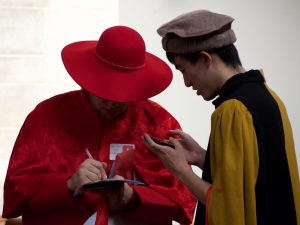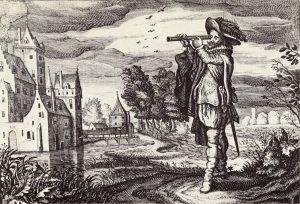PROGRAMS
Renaissance Studies Minor
College Course Clusters: The Renaissance
The undergraduate Course Cluster Initiative is designed to continue the thematic focus and multidisciplinary perspective of the Core Curriculum and to expose students to ideas from the vantage point of different disciplines. The Course Cluster in the Renaissance unites undergraduate courses in English, History, Music, Romance Languages, and Political Science on themes ranging from Shakespeare to the Inquisition to political economy. Students who take courses in the cluster receive priority registering for others, making it easier to get into more select Renaissance courses. More information.
Medieval Studies Program
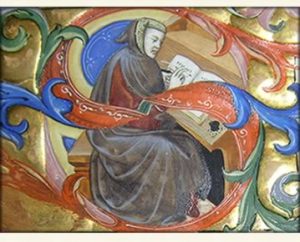 The university’s robust Medieval Studies Program offers an interdisciplinary undergraduate major and minor examining the Medieval world, and a long-running graduate workshop uniting faculty and graduate students from numerous programs around the university. The program also runs a mailing list of announcements of talks and events related to Medieval studies, help seeking fellowships and grants, a strong alumni network, and an annual prize for the best undergraduate thesis on a Medieval topic. By working with both the Medieval and Renaissance Studies programs students can gain a deep understanding of the long development which shaped the modern world. More information.
The university’s robust Medieval Studies Program offers an interdisciplinary undergraduate major and minor examining the Medieval world, and a long-running graduate workshop uniting faculty and graduate students from numerous programs around the university. The program also runs a mailing list of announcements of talks and events related to Medieval studies, help seeking fellowships and grants, a strong alumni network, and an annual prize for the best undergraduate thesis on a Medieval topic. By working with both the Medieval and Renaissance Studies programs students can gain a deep understanding of the long development which shaped the modern world. More information.
Master of Arts Program in the Social Sciences (MAPSS)
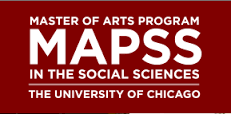 For students interested in advanced study of the Renaissance, the MA Program in the Social Sciences (MAPSS) is an intense one-year program of self-curated study offering the opportunity to work with University of Chicago faculty in the disciplines anthropology, economics, history, political science, psychology, and sociology. The program is not exclusive to the Renaissance, but includes a methods course which introduces students to the fundamentals of all the social science disciplines, and an MA thesis which can be overseen by our Renaissance faculty. The MAPSS program offers some opportunities to take courses in the Humanities, but is primarily appropriate for students who want to focus on social science approaches, and who seek training in methods and rather than languages and literatures. More information.
For students interested in advanced study of the Renaissance, the MA Program in the Social Sciences (MAPSS) is an intense one-year program of self-curated study offering the opportunity to work with University of Chicago faculty in the disciplines anthropology, economics, history, political science, psychology, and sociology. The program is not exclusive to the Renaissance, but includes a methods course which introduces students to the fundamentals of all the social science disciplines, and an MA thesis which can be overseen by our Renaissance faculty. The MAPSS program offers some opportunities to take courses in the Humanities, but is primarily appropriate for students who want to focus on social science approaches, and who seek training in methods and rather than languages and literatures. More information.
Master of Arts Program in the Humanities (MAPH)
 The Master of Arts Program in the Humanities (MAPH) is a one-year program of self-curated study in the interdisciplinary Humanities, aiming to prepare students for further graduate study, and to support creative projects and interdisciplinary experimentation in the humanities. Like the MAPSS program it is not focused on any specific subject, but offers the opportunity to work with University of Chicago Renaissance Program faculty. The MAPH program is appropriate for students who want a broad introduction to advanced Renaissance study, and are interested in literature, languages, interpretation and other humanities approaches as well as the social sciences. The MAPH program offers the opportunity to pursue language study during the MA, which the MAPSS program does not. More information.
The Master of Arts Program in the Humanities (MAPH) is a one-year program of self-curated study in the interdisciplinary Humanities, aiming to prepare students for further graduate study, and to support creative projects and interdisciplinary experimentation in the humanities. Like the MAPSS program it is not focused on any specific subject, but offers the opportunity to work with University of Chicago Renaissance Program faculty. The MAPH program is appropriate for students who want a broad introduction to advanced Renaissance study, and are interested in literature, languages, interpretation and other humanities approaches as well as the social sciences. The MAPH program offers the opportunity to pursue language study during the MA, which the MAPSS program does not. More information.
Ph.D. Program in Transformations in the Classical Tradition
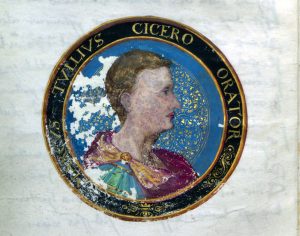 Offered by the Department of Classics, the PhD program in Transformations of the Classical Tradition enables students to approach the long history of classical thought and literature by following a course of study tailored to their particular interests.The first two years of study towards the Ph.D. are spent on coursework. Under the guidance of the Classics Director of Graduate Studies and TCLT program Chair, students will devise a program of courses that focus on, but are not limited to, key texts in literature, philosophy, historiography, and political theory in either Greek or Latin, and the reception, development, and transformation of these texts in one of the modern languages. During their first two years, students must also satisfy the requirements for their second ancient and modern language. More information.
Offered by the Department of Classics, the PhD program in Transformations of the Classical Tradition enables students to approach the long history of classical thought and literature by following a course of study tailored to their particular interests.The first two years of study towards the Ph.D. are spent on coursework. Under the guidance of the Classics Director of Graduate Studies and TCLT program Chair, students will devise a program of courses that focus on, but are not limited to, key texts in literature, philosophy, historiography, and political theory in either Greek or Latin, and the reception, development, and transformation of these texts in one of the modern languages. During their first two years, students must also satisfy the requirements for their second ancient and modern language. More information.
